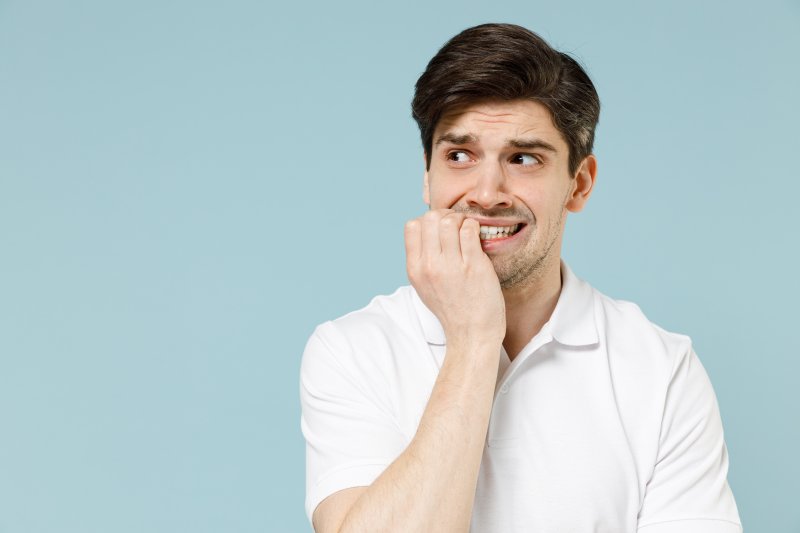Do you have a nail-biting habit? If you do, you may want to start breaking it. Biting your nails may seem harmless, but when it comes to your oral health, it’s a silent saboteur. It can cause significant damage to your teeth and gums. Read on to learn how this common practice is so terrible for your pearly whites.
What are the Risks for Oral Health due to Nail-Biting?
Chewing on anything that isn’t made to be consumed always comes with some risk. Ice, pens, and packaging are also responsible for many tooth-related woes. Here are some of the more prominent risks associated with nail-biting:
- Tooth Damage – The force applied when biting nails can lead to chips, cracks, or fractures in your teeth.
- Misalignment – Persistent nail-biting may shift your teeth over time, affecting their natural alignment.
- Bruxism Trigger – Research by the Academy of General Dentistry suggests that nail-biters are more prone to bruxism (teeth grinding). This can cause additional dental problems.
How Does Nail-Biting Affect Gum Health?
While some of the consequences for teeth may be obvious, like structural damage, it also has an impact on your gums. Damage to your gums can affect not only your oral health, but the well-being of your body as well.
- Gum Infections – Biting nails introduces bacteria from your fingers to your mouth, increasing the risk of gum infections.
- Gingival Recession – The repetitive motion of nail-biting can contribute to gum recession over time.
- Link to Other Conditions – Gum disease has been linked to several other health conditions like heart disease, diabetes, and Alzheimer’s. Healthy gums are essential for keeping your immune system strong.
How Can I Break the Habit of Nail-Biting to Improve My Oral Health?
So, now you know how nail-biting can affect your oral health, but how can you stop? Here are some tips that might help you kick the habit:
- Identify Triggers – Understand the situations or emotions that trigger nail-biting and work on addressing them.
- Keep Nails Trimmed – Short nails are less tempting to bite. Regularly trim and maintain your nails to reduce the urge. Keep several pairs of nail trimmers in your house, car, and possibly in your bag so you always have them.
- Use Bitter Nail Polish – Applying bitter-tasting nail polish can deter nail-biting by giving you negative feedback when you attempt it.
- Stress-Relief Alternatives – Find alternative stress-relief methods such as fidget toys, stress balls, or meditation.
- Seek Professional Help – If nail-biting persists despite your efforts, consider seeking support from dental professionals or behavioral therapists. They can provide guidance to help you quit.
Breaking the habit of nail-biting requires commitment, but the payoff is a healthier and more aesthetic smile. By understanding your habit’s impact on your oral health and using effective strategies to quit, you can protect your pearly whites. Today may be the day to take the first step, so take out the nail clippers, and get started!
About the Author
Dr. Peter Pate has made a career out of helping people, which is why he became a dentist. He earned his dental doctorate from the University of Tennessee School of Dentistry and has since then continued to develop his skills to better serve his patients. His practice uses the latest dental technology to make every visit efficient and anxiety-free. To schedule an appointment at Dentistry in Buckhead: Peter A Pate DDS, call (404) 266-9424 or visit the website to see what other services they provide.

